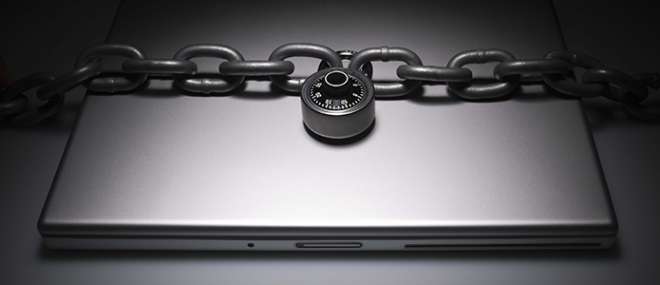Automation is on the rise in processing plants and food storage facilities – that’s a fact. But while computer technology opens up new possibilities for food and beverage manufacturers, it can also open the door to major cyber threats.
In fact, cybercrime has grown exponentially in the food and beverage industry, targeting big and small brands alike. One reason may be that cyber security measures don’t always keep up with fast-evolving computerized tools, and there’s a growing body of cybercriminals looking to exploit vulnerabilities in your multi-step manufacturing processes and vendor relationships.
The double-edged sword of automation
Computers have helped countless food and beverage businesses achieve more and expand into new arenas. On the other hand, as a company begins to rely heavily on automated systems to process, store, and manage a large amount of product, the threat of cyber attacks and data breaches increases.
Consider this: any part of your business that relies on a computer network is exposed to cyber risk. If your system is hacked and your software hijacked, your production and distribution can grind to a halt (leaving your revenue stream to dry up). But the trouble doesn’t always stop with your operations; in some cases, there’s a lot of valuable information at stake, too.
For instance, a microbrewery that sells beer onsite may be vigilant when it comes to software updates in their distribution system, but are they aware of the exposure that comes with handling their customers’ financial information? Smart security demands a careful eye and broad focus to protect all your assets.
Indeed, some criminals are more interested in using one company’s system as a pathway to other sensitive information. When your company works with other companies to make or distribute your product, a lapse in your security could open a gateway to their sensitive business data – and you could be on the hook for the loss.
Better awareness builds better defenses
Every company has a unique set of challenges, and a cyber defense program should be customized for each individual business. However, there are a few truths that any business owner would do well to consider:
- Any business can be targeted by cybercriminals, no matter its size or notoriety
- Cyber threats can invade at many points and processes
- Cyber risk is always evolving
Patrick Cruikshank, director of executive and professional solutions at Northbridge Insurance, suggests that employees at every level need to get in the game of cyber security. “Smaller businesses tend to look at cyber security as an IT issue,” he says. “But while IT focuses on technology, firewalls, antivirus updates, and patches, that department won’t necessarily guide the company’s response in the event of a network security or privacy incident.”
While IT focuses on technology, firewalls, antivirus updates, and patches, that department won’t necessarily guide the company’s response in the event of a network security or privacy incident.
Your IT department is an important player, but it’s only one piece of the puzzle; different departments and levels – including executives – should be involved in planning for, and mitigating, cyber risk. You’ll need to work in tandem while you continually follow trends in cybercrime and craft new approaches, if your business is going to stay ahead of the game.
Which cyber security measures are good for business?
There’s no universal security solution, but there are some solid approaches that experts like Cruikshank prescribe for better business protection. Here are a few of the things to keep in mind as you build out a cyber security strategy.
Know where you stand
Before you can improve on what you’re doing, you need to know where your strengths and vulnerabilities lie. First, conduct a self-assessment to see where your company stands, then apply risk management practices to both the factory floor and the office.
“Identify all your points of weakness, since any single vulnerability can impact others,” says Cruickshank. If you don’t have an in-house information security officer, it can be a good idea to bring in an external service provider to help inform your security strategy.
Plan for the worst – and practice your recovery
A business continuity plan is important, but so is an action plan that can address the immediate steps to take after an incident. You may not need to recall product after a cyber attack, but you can use some common product recall measures to address a cyber breach: think about how far and wide the product (in this case, your data) extends, and how to mobilize different departments and vendors to help contain the problem.
It’s also a good idea to perform mock cyber events, since trends change quickly. Taking your team through the motions can unveil places for improvement and instill confidence. New exposures are arising all the time, and companies cannot afford to ignore the shifting cyber landscape if they want to prevent outside access to their data.
Back-up your data
It should come as no surprise that regularly backing-up your files is crucial to prevent digital disaster. But are you backing-up that data properly? Software patches should be installed as soon as they become available, but pay close attention to how you’re storing your data in your system.
Most backups overwrite an older version, which can be problematic if there’s malware on the system. Consider switching to an “iterative” approach: using a date stamp on each file version will help you keep the versions separate, so if malware was to infect a file, you should be able to go back to when the data was clean and install a backup there. A security expert can advise on the best way for you to back up your data.
Consider your coverage
Cybercrime is a relatively new threat, and the fact that it’s becoming increasingly severe means that many companies simply aren’t adequately protected. Cyber risk coverage exists, but many companies fall short: some may only have a starter cyber product, or a bundle that doesn’t include the limits they require.
So, what happens if you don’t have specific coverage? It’s possible you wouldn’t be able to recover lost profits that stem from a cyber incident, because there’s no defined incident for your insurance policy to respond to, or the limits of your policy may be quickly exhausted.
Teamwork is a key to success
Good coverage should go hand-in-hand with smart risk management. Think long-term solutions when it comes to cyber risk: staff training should be widespread but also ongoing, and a commitment to raising awareness will help your business stay alert and keep your security program on track. After all, frontline staff will be more susceptible to human errors like losing a laptop or clicking on a dangerous link, so their cyber risk awareness is integral to the security of your business.
Does your business need a fresh cyber strategy? We can help. Request a quote to get started today!




